
Articles by Sudan
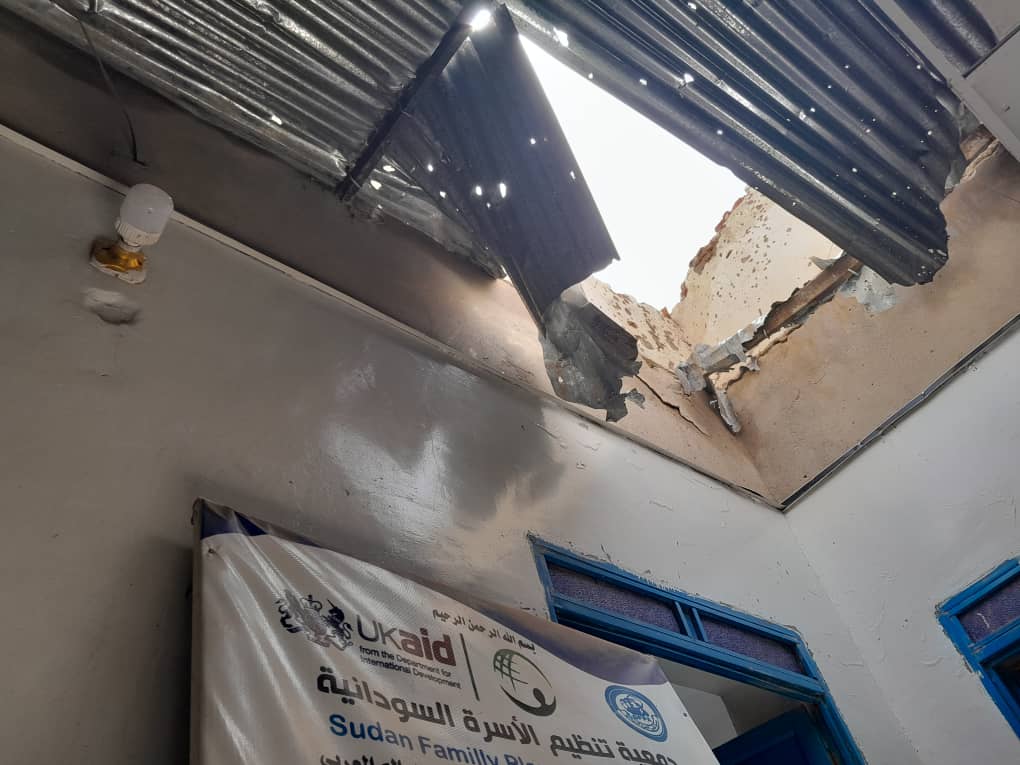
IPPF Statement on RSF Attacks Against Sudan Family Planning Association Health Facilities
Statement from Dr Alvaro Bermejo, IPPF Director General: The International Planned Parenthood Federation condemns the multiple attacks in Khartoum and Elfashir (North Darfur) against clinics and health centers run by the Sudanese Family Planning Association (SFPA) between 7-9 September. Unprovoked attacks against the health facilities in South Khartoum (Elshik Wad Hamad) and in Elfashir City (Aboshok Clinic) have destroyed the infrastructure of the facilities, injured clients and staff, and interrupted the delivery of the most needed health services for vulnerable people of Sudan, especially women and girls of reproductive age. These attacks, just like the previous attacks against health facilities and medical professionals since the outbreak of violence in the country began on 15 April, will prolong the suffering of the Sudanese people. IPPF requests the protection of civilians and civilian institutions, especially healthcare facilities, to ensure the provision of healthcare and the basic humanitarian necessities for the Sudanese people. For media requests, contact [email protected] About the Sudan Family Planning Association The Sudan Family Planning Association (SFPA) was established in 1965 by pioneers in obstetrics and gynecology in response to increases in maternal, neonatal and infant mortality and morbidity. As the statistics show, Sudan is a country in great need of frontline sexual and reproductive health (SRH) services. Advocacy, and undertaking information, education and communication (IEC) programs are critical. In 2022, SFPA provided 26 millions of services through 24 clinics, 261 associated clinics, and 37 mobile clinics . Since the start of the crisis in 15th April; the association teams was successful in providing 2,500,000 services through 24 SFPA facilities and 8,500,000 services through non damaged associated and mobile clinics. SFPA was able to assist 1145 deliveries under bombarding and provided 167000 treatments of HIV in its static clinics.
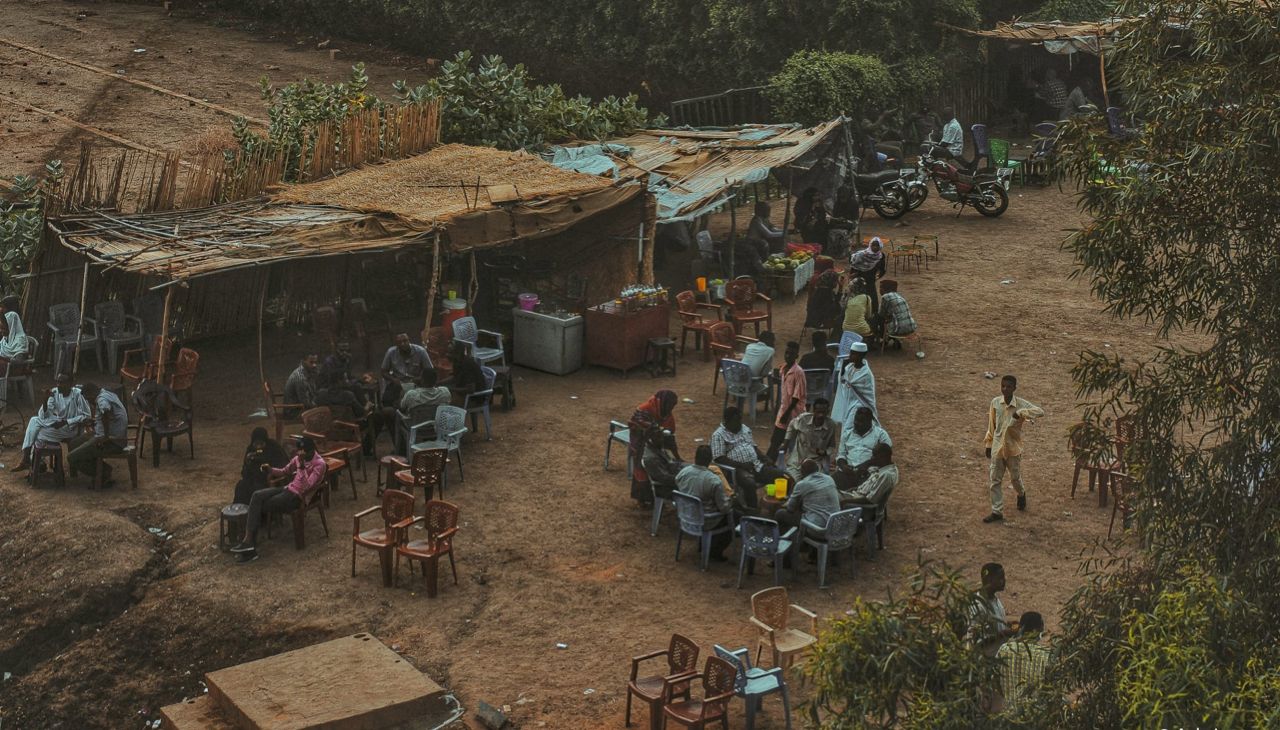
Eyes on Sudan: Africa’s second largest asylum country now faces its own refugee crisis
By Dr. Hiba Ahmed Khalil Badr, Director of Emergency and Humanitarian Interventions, Sudan Family Planning Association Sudan has a long record of generously hosting refugees. At the beginning of 2023, Sudan was the second largest asylum country in Africa with over 1.11 million refugees. Most of these people came from nearby countries including South Sudan, Eritrea, Ethiopia, Central African Republic, Chad, Syria, and Yemen. But now, Sudan is the origin of one of the world’s largest refugee crises. The descent into war between the Sudanese Armed Forces (SAF) and the paramilitary Rapid Support Forces (RSF) in the capital Khartoum on 15 April has already displaced nearly 2 million people, according to the UN. While security issues and bureaucratic hurdles have prevented the majority of humanitarian aid from reaching innocent refugees and internally-displaced Sudanese people, local organizations and volunteers continue to shoulder most of the relief work. As the Director of Emergency and Humanitarian Interventions with the Sudan Family Planning Association (SFPA), I have witnessed firsthand the impact of this heinous war on our country’s most vulnerable people, including our women, girls and other marginalized groups.
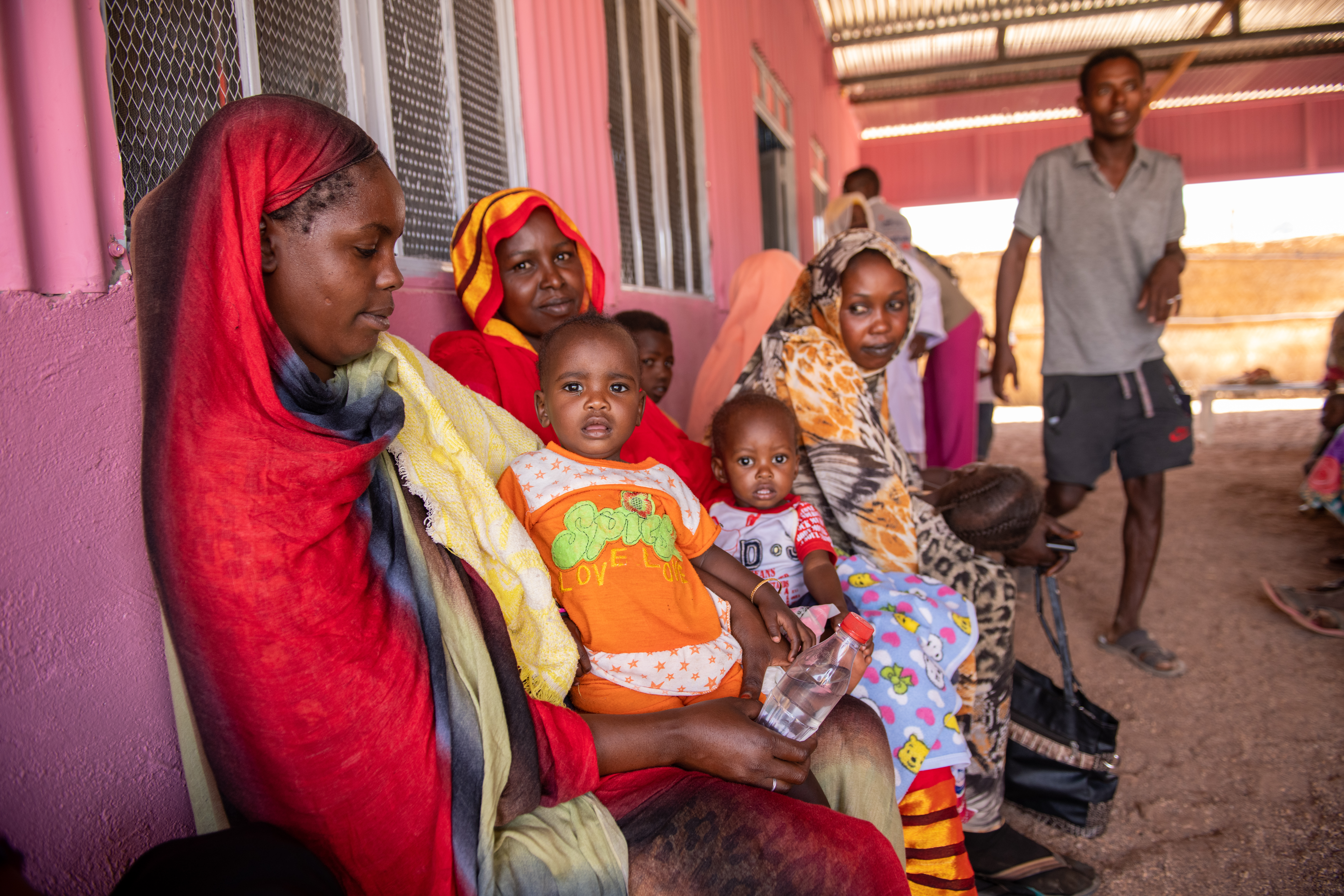
Ethiopian refugees find help in the clinic with pink walls
It's mid-morning, and the Um Rakuba refugee camp on the southern border of Sudan is hot. There are few trees to take shade from the 40°c heat. The dusty main road is bordered on both sides by rows upon rows of huts and tents, temporary accommodation established by The United Nations High Commissioner for Refugees (UNHCR) for the tens of thousands of refugees who have fled over the border from neighbouring Ethiopia since fighting broke out between government forces and the Tigray People’s Liberation Front (TPLF) in November 2020. The severe humanitarian crisis has left more than 5 million people facing starvation. This week, peace talks mediated by the African Union are taking place in South Africa in an aim to break the bitter impasse between the Tigray region and the Ethiopian federal governments and bring succour to the desperate people caught in the middle. Many arrivals tell of being victims of armed groups, facing perilous situations, including looting of their houses, forceful recruitment of men and boys and sexual violence against women and girls. Refugees are arriving with little more than the clothes on their backs, fatigued and in weak conditions after sometimes days of travel. The main road of the camp is peppered with the temporary offices of well-known charities, some providing food aid, others medical care. But there is only one clinic that has bright pink walls and welcomes women, girls, and men inside for free sexual and reproductive healthcare. The Sudan Family Planning Association (SFPA) quickly established a presence here once refugees started to arrive as they understood sexual and reproductive health is not only vital for women’s health and safety but very often overlooked by the humanitarian community.

In pictures: The Women of Tigray
The civil war in the Tigray region of Ethiopia began in November 2020, causing tens of thousands of people to flee. There are currently over 21,000 refugees in Um Rakuba camp, where the Sudan Family Planning Association (SFPA) has established a sexual and reproductive healthcare clinic for refugees and the host community. Community mobilizers visit the camp daily to let women know about the clinic, which provides pregnancy testing, pre- and post-natal care (including ultrasounds), HIV and STI testing and care, and both long and short acting contraceptives. This collection of portraits captures the strength, grace, and dignity of the women, despite the horrendous trauma they have experienced and the circumstances they now live in. Photography ©IPPF/Hannah Maule-Ffinch.
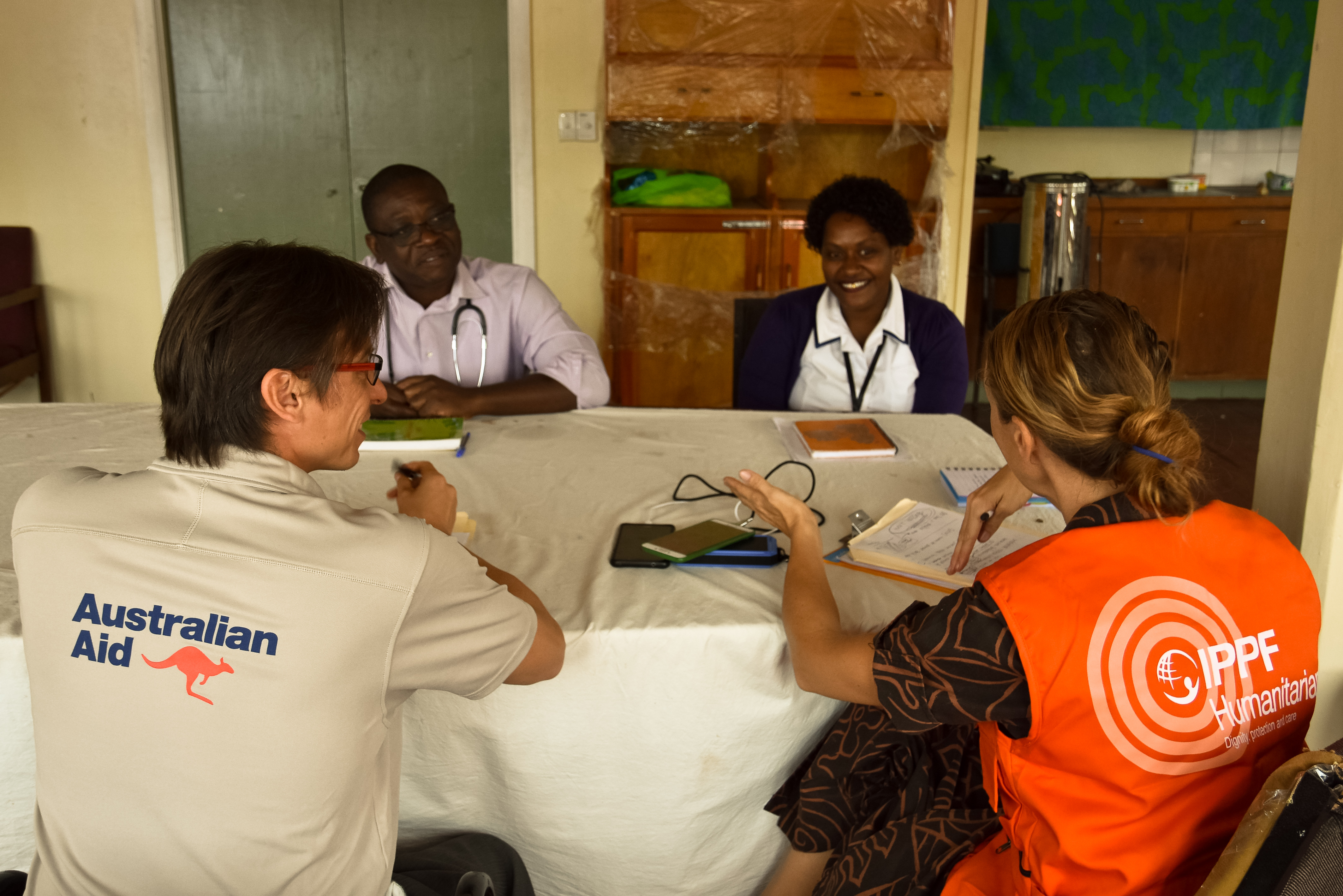
SPRINT: Sexual and reproductive health in crisis and post-crisis situations
The SPRINT Initiative provides one of the most important aspects of humanitarian assistance that is often forgotten when disaster and conflicts strike: access to essential life-saving sexual and reproductive health services. We build capacity of humanitarian workers to deliver essential life-saving sexual and reproductive health services in crisis and post-crisis situations through the delivery of the Minimum Initial Service Package (MISP) for reproductive health in emergencies. Through funding from the Australian Government's Department of Foreign Affairs and Trade (DFAT), our SPRINT Initiative has brought sexual and reproductive health to the humanitarian agenda, increased capacity and responded to a number of humanitarian emergencies. Australia has funded the SPRINT initiative since 2007. Since then, the SPRINT initiative has responded to 105 humanitarian crises and worked with partners in 99 countries. SPRINT has reached over 1,138,175 people, delivering 2,133,141 crucial SRH services, and continues to respond to ongoing emergencies. In each priority country, we work with an IPPF Member Association to coordinate and implement life-saving sexual and reproductive activities. Through these partnerships, SPRINT helps strengthen the enabling environment, improve national capacity and provide lifesaving services during times of crisis. You can read more about IPPF Humanitarian’s Programme here. Australia's location in the Indo-Pacific provides DFAT with a unique perspective on humanitarian action. Australia is committed to helping partner governments manage crisis response themselves. This is done through building the capacity of the national government and civil society to be able to respond to disaster. DFAT also works with experienced international partners to prepare for and respond to disasters, including other donors, United Nations agencies, the International Red Cross and Red Crescent Movement and non-government organisations.

In pictures: Innovating during COVID-19
Women around the world have faced multiple barriers to accessing safe abortion care during the COVID-19 pandemic including the de-prioritization of sexual and reproductive healthcare, overwhelmed health systems and restrictions on movement. The COVID-19 crisis has sparked innovation among IPPF Member Associations who responded swiftly by developing new approaches to reach women with safe abortion care including telemedicine and home-based provision of medical abortion. Strong evidence generated from this work supports the continuation and strengthening of these approaches beyond the end of the pandemic. Cameroon Cameroon National Planning Association for Family Welfare (CAMNAFAW) To ensure that quality abortion care can be provided to women during travel restrictions, CAMNAFAW’s service providers travel to partner clinics in underserved areas and to clients’ homes to provide medical and surgical abortion care. This model of taking safe abortion care closer to women will continue even with easing of travel restrictions, as this has been found to be an effective and acceptable approach to increasing access.Photo: IPPF/Xaume Olleros/Cameroon Share on Twitter Share on Facebook Share via WhatsApp Share via Email Guinea Association Guinéenne pour le Bien-Etre Familial (AGBEF) Building on lessons learned during the Ebola crisis in Guinea, AGBEF quickly took measures to prevent infection in its clinics to continue providing sexual and reproductive healthcare, including surgical and medical abortion, in a safe environment. AGBEF donated protective materials to communities, including hand-washing stations, face masks and antibacterial gel, alongside messaging on infection prevention. This community visibility reassures clients they can safely attend AGBEF clinics for abortion and contraceptive care.Photo: AGBEF/Guinea Share on Twitter Share on Facebook Share via WhatsApp Share via Email India Family Planning Association of India (FPA India) FPA India and partners advocated to have sexual and reproductive healthcare, including abortion, recognized as essential by the government, which meant FPA India could continue healthcare delivery during the national lockdown. To reduce in-person clinic visits, FPA India established teleconsultation and counselling for abortion care, and is continuing to provide in-clinic care for both medical and surgical abortion. Photo: IPPF/Alison Joyce/India Share on Twitter Share on Facebook Share via WhatsApp Share via Email Nepal Family Planning Association of Nepal (FPAN) FPAN and partners advocated for interim approval of home provision of medical abortion and telemedicine for abortion counselling during COVID-19. FPAN is now implementing these approaches, ensuring continued access to abortion care in Nepal, where many people live in remote locations with limited mobility, which has been further restricted by COVID-19 lockdowns. Photo: FPAN/Nepal Share on Twitter Share on Facebook Share via WhatsApp Share via Email Pakistan Rahnuma – Family Planning Association of Pakistan (Rahnuma-FPAP) Rahnuma-FPAP and partners successfully advocated for the government to class sexual and reproductive healthcare as ‘essential’, which enabled the team to continue providing post-abortion care during the pandemic. Rahnuma-FPAP expanded its telemedicine and home-based provision for menstrual regulation counselling and post-abortion care. These new approaches have ensured continued access to services for clients unable to reach clinics.Photo: Rahnuma-FPAP/Pakistan Share on Twitter Share on Facebook Share via WhatsApp Share via Email Palestine Palestinian Family Planning and Protection Association (PFPPA) In response to the government-mandated closure of its clinics, PFPPA quickly established a toll-free call centre which provides consultations, counselling, referrals and follow-up, including consultation for abortion care through a harm reduction approach, ensuring that women are provided with accurate information. Due to its success, PFPPA is exploring options for continuing this healthcare delivery model beyond the pandemic, with the aim of keeping it free of charge for users.Photo: SAAF/Samar Hazboun/Palestine Share on Twitter Share on Facebook Share via WhatsApp Share via Email Sudan Sudan Family Planning Association (SFPA) Following a nation-wide shutdown in April, SFPA established a call centre to increase access to healthcare, including abortion and contraceptive counselling and referrals. An unexpected outcome of the new call centre is that it has reached an increased number of young women who regularly call to discuss their reproductive health and rights. SFPA is working towards institutionalizing this model for continuation beyond the pandemic.Photo: SFPA/Sudan Share on Twitter Share on Facebook Share via WhatsApp Share via Email Togo Association Togolaise pour le Bien-Etre Familial (ATBEF) ATBEF adapted its mobile application ‘Infos Ado Jeunes’, adding a toll-free teleconsultation service for young clients to use to access abortion consultations and pre- and post-abortion counselling. This app has given young clients ongoing access to care when they face challenges travelling to clinics. It has also eased overall client flow in clinics at a time when social distancing is being implemented.Photo: ATBEF/Togo Share on Twitter Share on Facebook Share via WhatsApp Share via Email

COVID-19 Impact: What we know so far – Sudan
An interview with Elshafie Mohamed Ali, the Executive Director of Sudan Family Planning Association (SFPA), on the impact of COVID-19. How has Sudan been affected by coronavirus/COVID-19? The Sudan Federal Ministry of Health confirmed the first case and death from coronavirus (COVID-19) in the second week of March – a man who had returned from UAE a week before. Since the first declaration of emergency in Sudan, the Sudan Family Planning Association (SFPA) has formed emergency committees at the head level and branches (clinics) level. Many activities had been implemented through these committees, starting with training of youth and volunteers in collaboration with the Ministry of Health to deliver health messages to the community around health and COVID-19. Now they will continue online activities to deliver health promotion messages in an innovative way to reach diverse areas in Sudan. What are the main services that SFPA provides in Sudan? SFPA provides STI (including HIV) treatment, reproductive tract infections treatment, gynaecological services, antenatal and postnatal care, post-abortion care, fertility, urology, and gender-based violence related services. In addition to this, we also provide primary health care services, general practice and laboratory services. There is also a 24-hour delivery room at one clinic at an internally displaced persons camp in north Darfur. Broadly speaking, how are those services provided? These services are delivered through integrated reproductive health clinics, mobile clinics, and mobile teams in some areas. Family planning services are also provided in collaboration with the Ministry of Health through social franchising, public and private clinics, and also community based services. How has SFPA been impacted by COVID-19? All sexual and reproductive health (SRH) services are expected to be dropped, as the Sudanese health system is already extremely exhausted, and all available resources will be directed towards the emergency response to COVID-19. Since early March, the number of clients attending our clinics has decreased to comply with the Ministry of Health’s emergency instructions, and we have focused our activities towards COVID-19 prevention and awareness. SRH services and family planning methods distribution are expected to decline due to the current emergency situation. From the first week of April all clinics stopped delivering services except emergency ones. SFPA stressed on precautionary procedures to protect all beneficiaries, staff, and volunteers. Which services provided by SFPA have been the worst hit? Remote areas in Sudan with no medical services will be affected with discontinued mobile clinics services. Access to all family planning, antenatal care, and postnatal care services will be affected due to restricted movement. Sudan, as will many other countries, will be impacted by any decrease in activity in the supply chain for healthcare supplies. Are frontline staff still able to go into the community to deliver services? No, they had been stopped since the beginning of April. What services are you still able to provide? SFPA now is working on plans to continue delivering SRH services, keeping in mind the safety of all. What concerns do you have about the impact on women and girls? With the reduction in family planning services, we will see an increase in unintended pregnancies which will lead to unsafe abortion methods as abortion is not allowed in Sudan. Can you describe in what ways you are delivering services differently because of COVID-19? SFPA has started working with corporations that will help us to continue in our services in a different way to fit the emergency conditions without stopping our services. A call center is planned to be launched this month if things go well. This call center will offer the full package of SRHR (sexual and reproductive health and rights) services to the 18 states of Sudan, 24 hours per day, and is expected to reach 73.8% of the population who own phones. Services will be provided in two levels; the first level is the general practitioner who will offer information, counseling, prescription for contraception, and referral to the second level, who will be either an obstetrician or gynaecological consultant. If the client needs any intervention they will be referred to SFPA clinics or to Ministry of Health associated clinics. An app will also be developed to serve our clients. The app will offer: SRH information on sexuality education, women’s health, contraceptive methods, abortion and post-abortion care, antenatal, natal and postnatal care, STIs including HIV/AIDS, and sexual and gender-based violence Information on how to choose contraceptive method by using medical eligibility criteria and how to manage simple side effects Responses to misconceptions raised by the community about family planning methods A chat box for visitors with counsellors Live communication with healthcare providers, who will provide interactive counseling and step-by-step management of the case, with the ability to follow up laboratory results and ultrasound reports Counseling videos to help reach people living with a disability What message do you have for people and your staff in Sudan when it comes to SRH services and COVID-19? For the people of Sudan: Stay at home remain safe. SFPA staff: Remain safe and follow all safety protocols so that we can continue to serve our community.
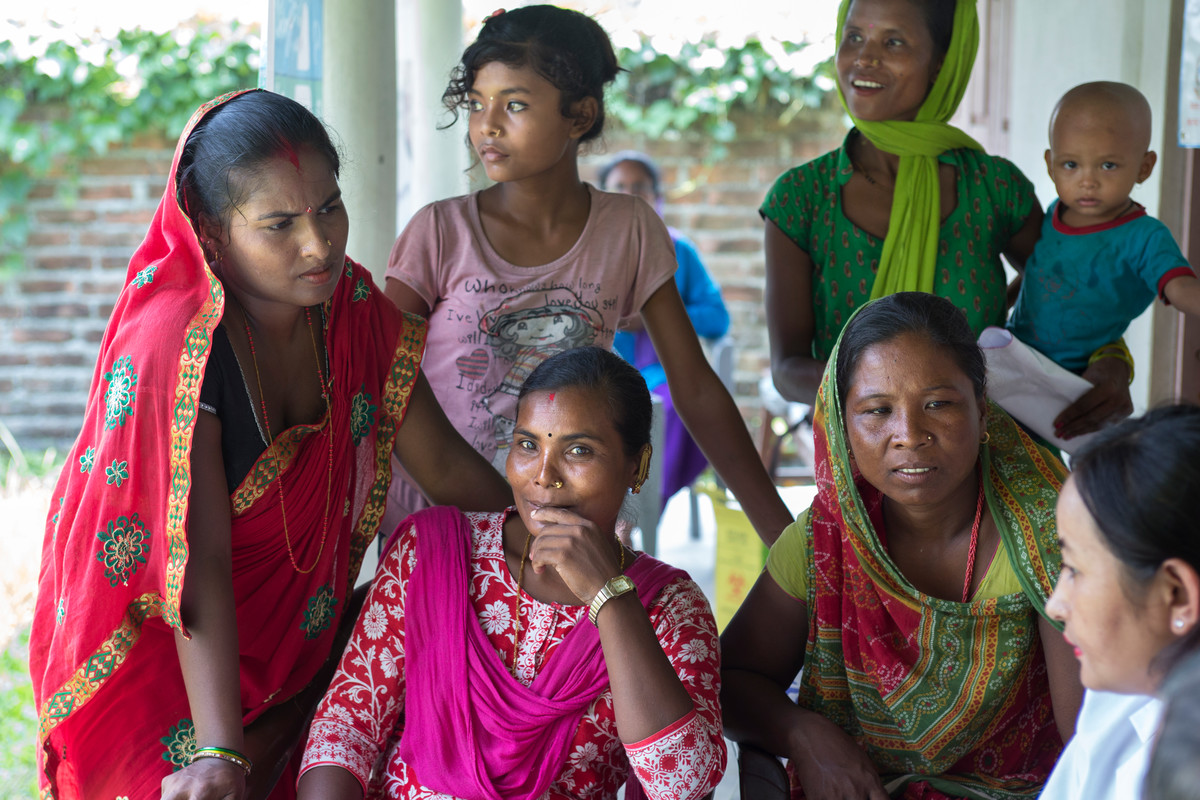
Leaving no one behind: Universal health coverage and sexual and reproductive health and rights
Universal health coverage means ensuring every person has access to quality, affordable health services and plays a pivotal role in achieving global development targets. Healthy populations can better contribute socially and economically, while poor health is a major driver of poverty. Universal access to sexual and reproductive health care services is identified in the Sustainable Development Goals as an essential contributor to ensuring healthy lives and promoting well-being for all at all ages. IPPF, together with the London School of Hygiene and Tropical Medicine, undertook a literature review looking at progress to date in and challenges to achieving universal access to sexual and reproductive health and rights. The review, Leaving no one behind, is illustrated with case studies on Afghanistan, Cambodia, Kenya and Sudan. Supported by the Japan Trust Fund.
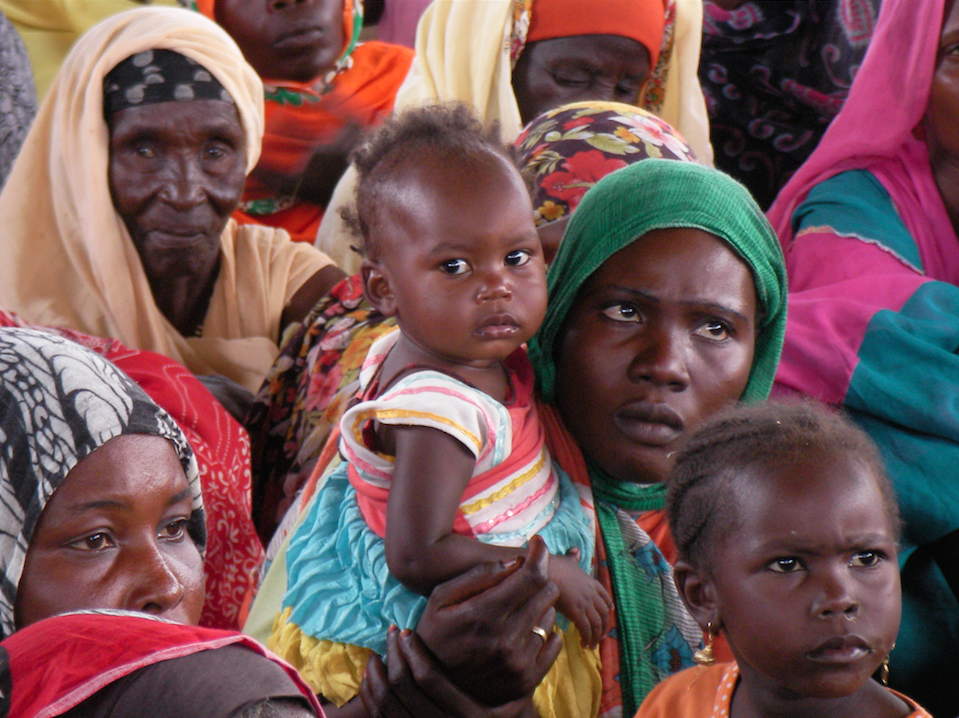
Resilience and survival in the camps of Nyala
Read more
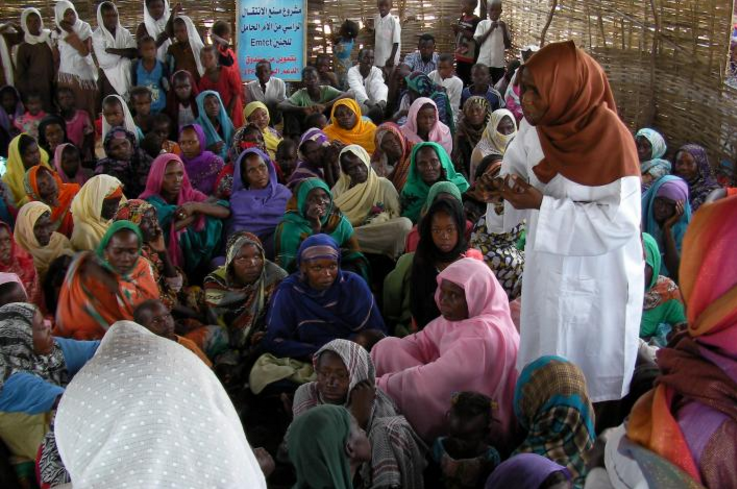
Resilience and survival in the camps of Nyala, South Darfur
Mention Nyala in South Darfur and red flags go up, alerts of a lawless place, a place of insecurity – a volatile place. But the less told story of the camps in Nyala - the story behind the headlines - is one of resilience and hope. Friends who remain when others leave: Sudan Family Planning Association and Japanese Trust Fund Entrenched conflict in Darfur has impacted on the lives of millions, forcing many to flee their homes to camps for internally displaced people. The Sudan Family Planning Association (SFPA) is working in Nyala, South Darfur with internally displaced people, including women and young people, to enhance lives. With support from the Japanese Trust Fund, SFPA was able to offer integrated sexual and reproductive health services to women living with HIV and their families.
Pagination
- Previous page
- Page 2
- Next page







